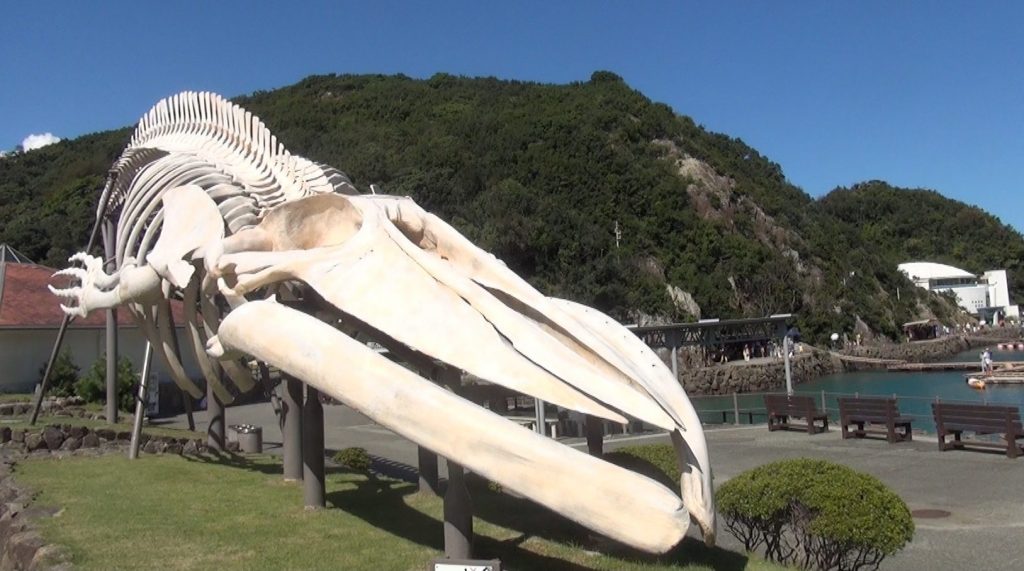This article first appeared on JAPAN Forward.
(Conclusion)
Part 1: Director Keiko Yagi: Why I Had to Make ‘Behind THE COVE’ Amid the Anti-Whaling Uproar
Part 2: ‘Behind THE COVE’: A Visual Take On the Whaling Issue
The movie Behind ‘THE COVE’ presents the audience with facts about how the Japanese have lived alongside whales since the ancient times as well as the historical context of the whaling culture. It also explains that the purpose of the Perry Expedition, which is known for having ended Japan’s isolation policy during the Edo Period, was, in fact, whaling.
Many viewers told me honestly that they had no idea that some countries even use whales for military purposes.
Also, the Sea Shepherds are heralded as heroes in Australia, but many moviegoers were surprised to find out that their founder, Paul Watson, is an international fugitive.
Most people blindly believe that whales are on the brink of extinction, even though they don’t know the actual numbers. Research suggests that whales migrating around the world’s oceans consume three to five times more fish than all the fish that humans eat. The stomach contents of toothed whales reveal they eat a huge quantity of fish at once. Through the film, I was able to provide information about the ecology of whales that even I had not previously known.
Europeans and Americans are often willing to listen to opposing views, and I think that’s wonderful. In contrast, many Japanese have an aversion to discussions with those who disagree with them out of worry it could lead to conflict. In truth, though, even anti-whaling activists might be persuaded to change their mind once the facts are before them. Of course, there are stubborn people who are never willing to listen to other points of view—that is beyond our control—but both sides need to understand the other’s viewpoint.
Moratorium Not Based on Scientific Info
It has been pointed out that the conflicting political agendas of whaling and anti-whaling nations have dominated the International Whaling Commission (IWC) since the 1980s.
Anti-whaling nations rapidly increased their votes by dragging in small countries as new members, even though these countries had never practiced whaling. Some reports have also suggested that their IWC membership costs are borne by anti-whaling activists with abundant funds. If this is indeed true, then why has it been permitted?
Research data show whale populations in the world’s oceans have been recovering since the moratorium on whaling, yet Japan has not been permitted to resume commercial whaling even on recovered populations. This is because decisions are based on a three-quarter majority vote under IWC rules.
Now Japan is being accused of practicing commercial whaling under the guise of scientific research. Perhaps this is not to be denied, but it is also an unsurprising consequence of an unfair decision. The IWC’s moratorium on commercial whaling remains in place—not based on data on the number of whales, but because of the pretensions of anti-whaling nations. Japan should claim the right to resume commercial whaling proudly, based on scientific information. Negotiators have even testified that not a single scientist opposed commercial whaling in the process of enacting the moratorium.
Members of the Convention on International Trade in Endangered Species of Wild Fauna and Flora (CITES), known as the Washington Treaty, also chose to regulate commercial whaling in the 1980s, electing by majority vote to incorporate the IWC moratorium of the time. I have heard the international organization has completely disregarded scientific facts and rebuffed ongoing efforts at productive discussion on the issue for many years.
Requests for Screening
Additionally, Canadian Eugene Lapointe, a former president of CITES, revealed in his book, “CITES is supposed to be a respected international treaty organization, but I heard and experienced first-hand how it is threatened and manipulated by private organizations and a handful of American bureaucrats.” This is the reality that the public rarely has an opportunity to know.
Anti-whaling activists are calling on countries to boycott the 2020 Tokyo Olympics. Conversely, I think it provides a great opportunity to introduce whale cuisine—a traditional part of Japan’s food culture—to spectators from abroad. Japanese cuisine is already popular worldwide, and the event should provide a chance for those who are curious to try whale cuisine.
There have been requests from various countries to arrange screenings of Behind ‘THE COVE.’ However, there is a limit to what one person can do. My hope is that Japan societies and anti-whaling activists will become the main agents promoting the screening of my film abroad, and that I can travel to these locations to engage with them in an exchange of opinions.
It is my earnest hope that people throughout the world will come to realize the essence and reality of the whaling issue through my film.
Keiko Yagi is a film director, camera and editor. Her first documentary film Behind ‘THE COVE’ won the award for Best Director at the 2018 London International Filmmaker Festival in February, and it also got the New Perspective Prize at the 2018 Japan Wildlife Film Festival in April.
(Click here to watch the digest of Behind ‘THE COVE’.)
